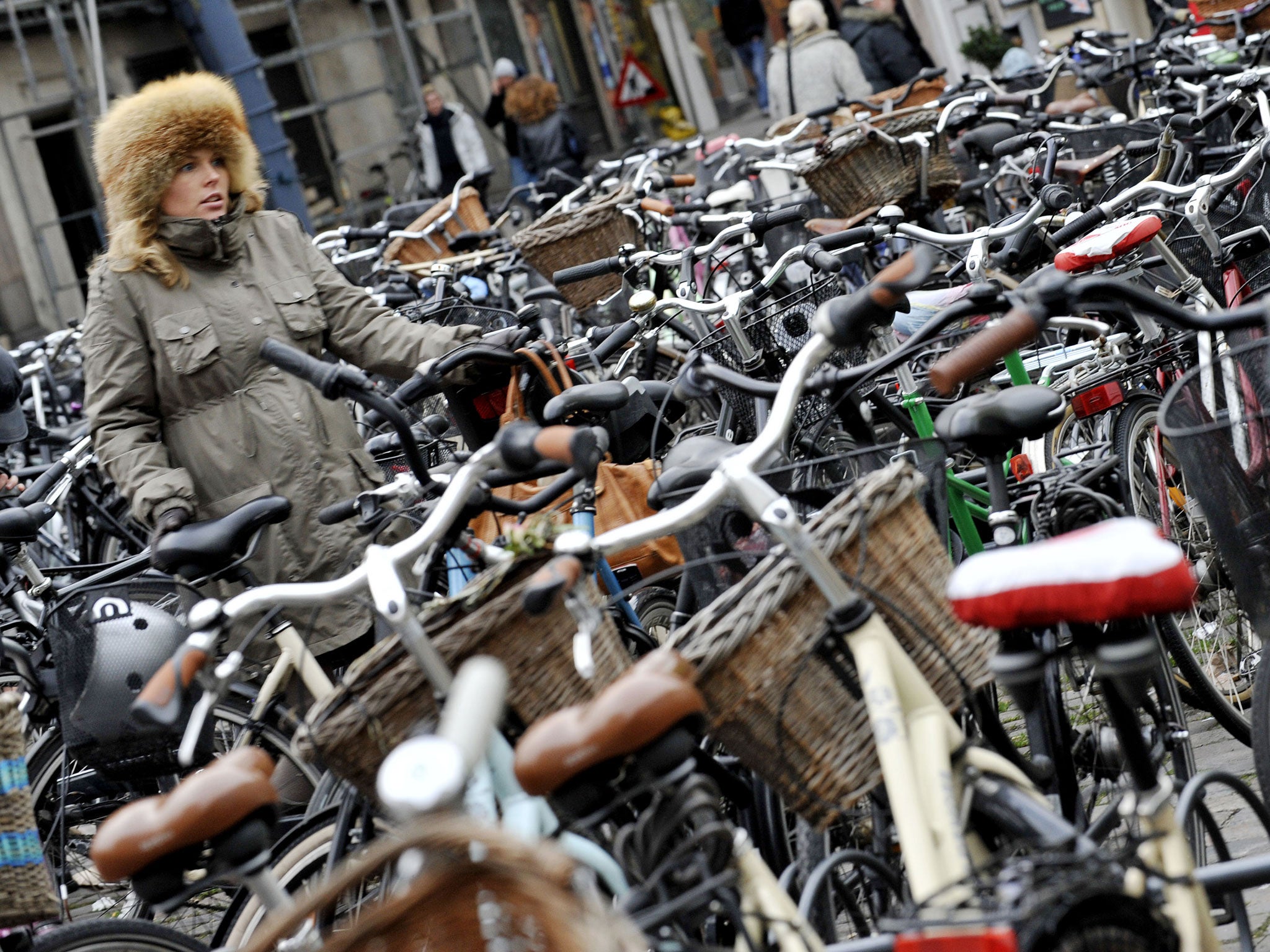Auto ban: How Hamburg is taking cars off the road
‘Green Network’ for bicycles and public transport is designed to bypass vehicles within 20 years

For a country which prides itself on having given the world the Mercedes and the Autobahn, it represents a major ideological U-turn: Hamburg, Germany’s second largest city, is planning to drastically to reduce the number of cars from its centre over the next 20 years and put thousands of commuters on bikes.
Under an audacious urban development scheme named “Green Network”, all vehicles will be verboten in significant swathes of the city by 2034. Instead people will move about the port city, either via public transport or on foot or bicycle along a series of idyllic green thoroughfares which are now being painstakingly created.
“We envision a network that doesn’t just help residents to get from point A to B in a sustainable fashion,” Hamburg city spokeswoman Angelika Fritsch told the ZME Science urban planning network.
“It will offer people opportunities to hike, swim, do water sports, enjoy picnics, restaurants, experience calms and watch nature right in the city."
A glance at the map of the Green Network project helps to explain what Hamburg’s environmental planners have in mind. On paper, the port city resembles a 3D depiction of a human organ. The conurbation is surrounded by green spaces which spawn scores green artery-like paths leading to the city centre.
The impression is reinforced by the mighty river Elbe and its tributaries which feed into the city centre and beyond and in many cases function as additional green waterways also leading to the centre of town. Some 30 city planners are currently working full time on plans for the network which will cover some 17,000 acres.
Hamburg’s planned Green Network will cover some 40 per cent of the city’s entire area and will connect parks, recreational areas, playgrounds cemeteries and gardens with a comprehensive network of green paths. “Cities like London have a green belt, but the Green Network will be unique in covering an area from the outskirts to the city centre,” Ms Fritsch insists, “ In 15 to 20 years it will be possible to explore the city exclusively by bike or on foot,” she added.
The only major European city to have attempted something similar is Copenhagen which is currently building a network of 26 so-called “bicycle superhighways” which spread out from the city centre to the outskirts. The project is part of the Danish capital’s aim to become carbon neutral by 2050.
In Germany, the exclusively green “Vauban” suburban development on the outskirts of the south western city of Freiburg has managed to completely ban cars. Residents can only walk or cycle about its streets. If they insist on keeping their vehicles they have to rent spaces in a multi-storey car park well outside the centre.
Jens Kerstan, the parliamentary leader of Hamburg’s Green Party describes the Green Network as an excellent idea. “But we are still in the early stages,” he adds. He says one of the main objectives is to adapt the city to climate change, an issue still overlooked by many politicians, who since Fukushima, he says, have been preoccupied with Germany’s commitment to abandon nuclear power.
“Our residents are quite progressive. Many Hamburgers are willing to give up their cars, which is very unusual in Germany,” he stresses.
Apart from making Hamburg a greener, quieter and more pleasant city to live in, the Green Network’s main ecological aim is to help the city absorb Co2 emissions and in the process, prevent storm flooding.
Germany’s Green Party has done much to raise public awareness about the challenge posed by global warming. Although it is a major North Sea port, Hamburg’s median temperatures have risen by 1.2C to 9C over the past 60 years. Sea levels have risen by 20 centimetres over the same period.
Hamburg has invested heavily in a comprehensive flood defence system which spared the city during the recent spate of hurricane force depressions which swept much of western Europe, but sea levels are expected to increase by another 30 to 110 centimetres by 2100.
For an economic standpoint, the Green Network has its critics. Some have argued that it could take up space that would be better suited for housing and business development. But Dr Sven Schulze of Hamburg’s Institute for International Economics says that the greening of Hamburg may also bring economic advantages “because it will help attract “highly educated and competent people” to the city, he claims.
Join our commenting forum
Join thought-provoking conversations, follow other Independent readers and see their replies
Comments